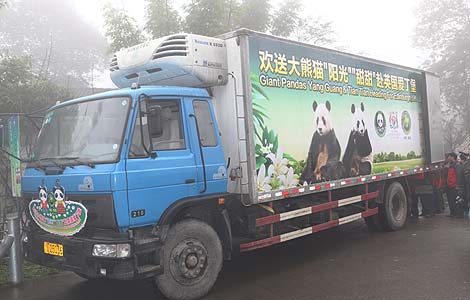IT makes all the difference
Updated: 2011-12-09 10:58
By Kitty Fok (China Daily)
|
|||||||||
WTO membership helps domestic vendors move up the value chain
Since China joined the World Trade Organization (WTO) a decade ago, a large number of international companies across a range of industries have come to the country to cash in on its huge market. Various goods, business models, and management experiences have been introduced in the local market since 2001. The changes have affected China's business environment greatly and enhanced customer satisfaction.
Different kinds of advanced and practical business IT (information technology) systems and applications, mainly those that were either new to local companies or rarely used by them, have also made an appearance in the country during the first decade of WTO membership.
To survive the competition and even gain an edge over foreign players, local companies have had to catch up in IT-assisted business practices, building up IT systems and automating management efficiently in as many aspects of business as possible. IT systems and business solutions such as business analytics, logistics control, and inventory management, plus a whole set of other applications involving almost all the critical business areas have been adopted by ambitious local companies.
Initially, the domestic IT market was dominated by established international vendors such as IBM Corp, Hewlett-Packard Co, Oracle Corp, and SAP AG in all aspects of hardware, software, and services. Local Chinese IT vendors were left with only a minimal share of the market. However, after years of growth, local IT vendors have become technically more mature and experienced in their own segments, and some of them have even come from behind to lead in their business areas. Take business analytics (BA) software for example. IDC data for 2010 shows that, among the top 10 BA solution providers, local vendors accounted for 36.4 percent of the market, compared with the 19.1 percent held by multinational corporations. China's UFIDA Co Ltd led the vendor share list at 15.6 percent, and seven other local companies were among the top 10.
Looking forward, China is surely a market with vast potential. It has Industrial and Commercial Bank of China Ltd, the world's largest bank in terms of market capitalization, China Mobile Ltd, the carrier with the largest number of subscribers worldwide, and railway networks running world's longest high-speed lines. This list could continue with more of the world's largest and best, but to make a profit from these colossal Chinese enterprises is not an easy task.
Local IT vendors will keep growing. In the next 10 years, I expect to see an increasing number of local vendors stepping out of the Chinese market and emulating companies such as Huawei Technologies Co Ltd and Lenovo Group Ltd, providing reliable products and trusted services, exporting proven practices to emerging markets, and establishing themselves overseas.
None of this could have been realized if China had not joined the WTO 10 years ago.
The author is vice-president of IDC Asia-Pacific, a US-based research company.











